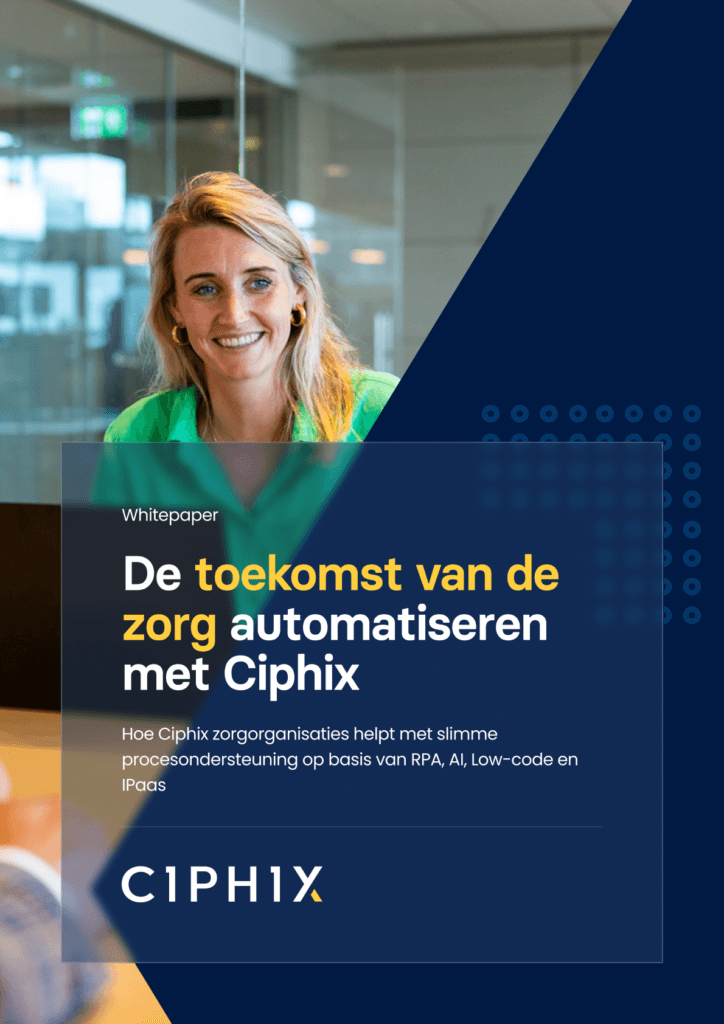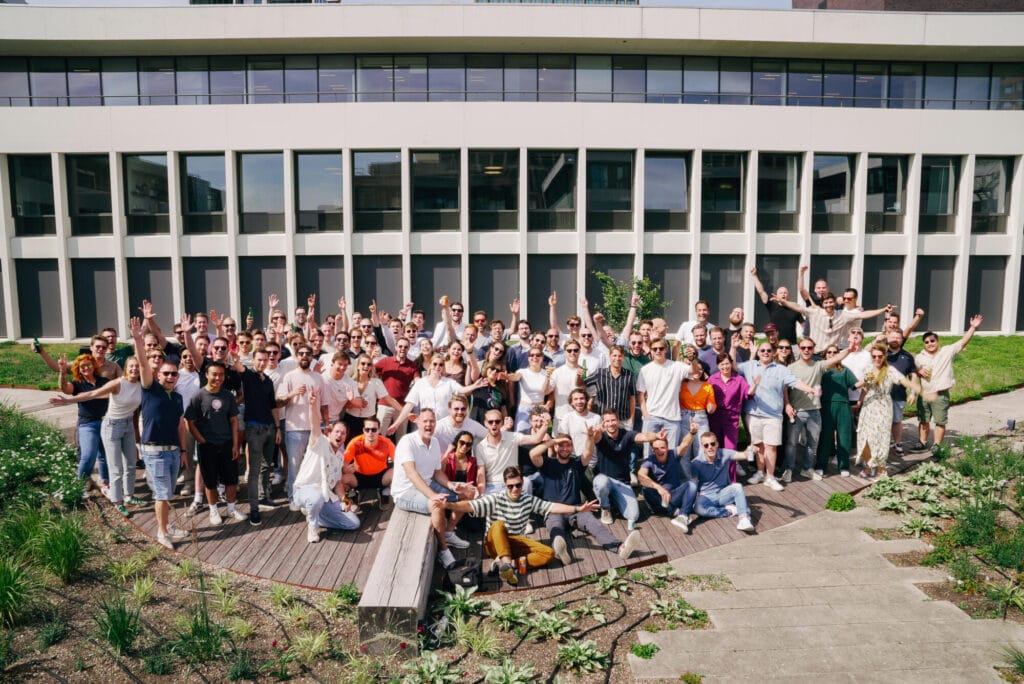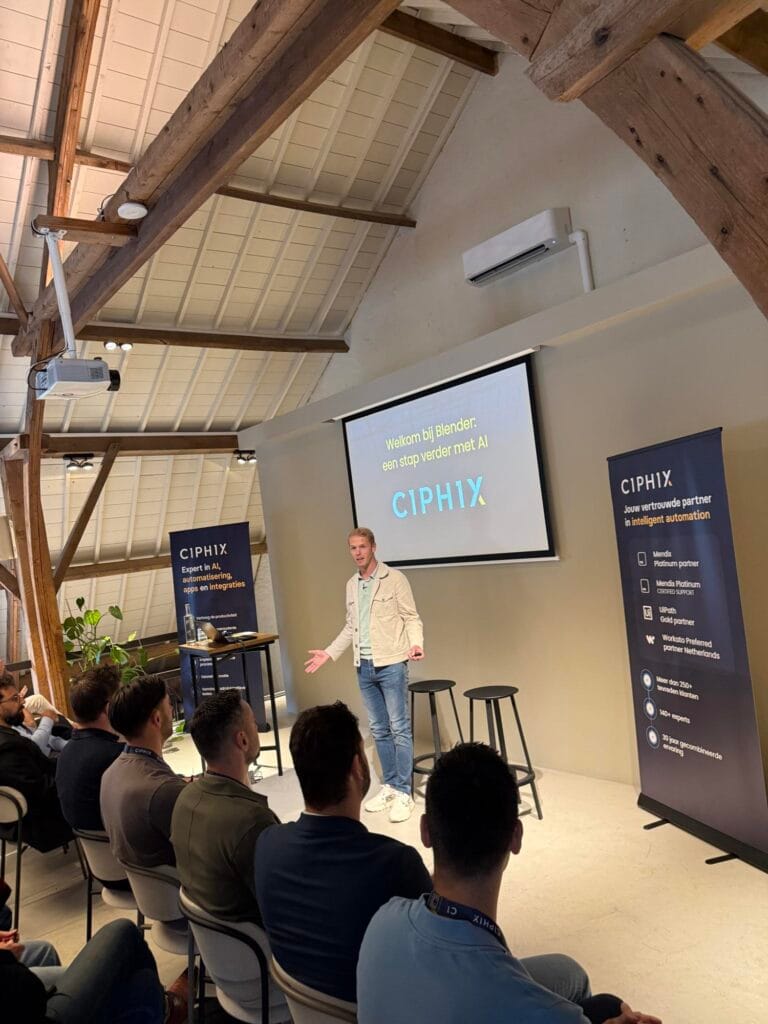How do I start with AI?
There is no denying that organisations must implement some form of intelligent automation to maintain a competitive advantage. But where do you start? Artificial intelligence (AI) is on many strategic agendas – but what can you actually do with it? We advocate for automation. But it must be done the right way. Don’t adopt AI just to tick it off the strategic agenda. The goal should be impactful automation.
We understand that every challenge and need is unique. Therefore, we view each client and challenge as unique. With our experience in different industries and departments, we tailor our advice and solutions accordingly. We do not believe in one size fits all!
Our approach
Flexibility
No ‘one size fits all‘, but an approach that fits your organisation.
Partnership
Your goals are our goals, and we work as one team.
Quality
We always deliver custom solutions that truly add value.
Start at the core
“Good preparation is half the battle won” is a philosophy we strongly believe in. That’s why we start with the core of your strategy. Our approach is to set up a partnership in which we think about your organisation’s goals and how Intelligent Automation can help you achieve them.
Navigating you way through the various technologies and options out there today can be overwhelming. That’s why we’ve designed 4 routes, each with a different starting point to help you identify, start or scale your intelligent automation journey. Read on and find out how you can start making an impact.
Get inspired by a client case: How Vitalis leveraged AI, shared at our recent event.
4 routes to get started
AI Kickstarter
Discover where the most potential for AI lies within your organisation
Is implementing AI on your strategic agenda but you don’t know how or where to start? With the AI Kickstarter, you take the first step towards a successful AI implementation within your organisation. With a structured approach spread over 2 workshops, together we identify the value and scope of use cases suitable for AI.
What’s involved?
2 workshops (180 minutes per session). 1 online meeting (90 minutes) and discussion of deliverables and reporting (90 minutes) – 2 sessions spread over 2 weeks
Due Diligence
Where in my organisation do I start maximising value?
A concise assessment with big impact. Conducted in two sessions to provide a high-level overview of where in your processes or organisation you can start with Intelligent Automation. This ensures you focus on the most promising opportunities with minimal upfront commitment.
What’s involved?
2 workshops (180 minutes per session). 1 online meeting (90 minutes) and discussion of deliverables and report (90 minutes). – Feasible in 1 day.
Sprint 0
Working together to determine how to implement a specific use case
A deep-dive to build a shared understanding of an intelligent automation use case. This includes scoping, timeline development and complexity estimation to ensure alignment on how to approach and improve your solution. Sprint 0 lays the foundation for a successful implementation by creating clarity and consensus among stakeholders.
What’s involved?
Total of 9 hours spread over several 60-90 minute sessions: Kick-offs, deep-dives, workshops, outcomes, reporting and deliverables. – Feasible in 1-4 weeks (not full time, depending on client stakeholders).
X-Ray
Identify use cases and determine appropriate actions
A systematic approach to identifying, prioritising and evaluating the next steps for starting, scaling or strategising initiatives around Intelligent Automation. Through detailed analysis and actionable guidelines, this framework provides a clear roadmap for maximising the impact of your automation efforts.
What’s involved?
Total average of 16 hours spread over several sessions: intakes, kick-off, workshops, interviews, deliverables and reporting. – Feasible in 1 month (depending on availability of client stakeholders).
What people say about us
Frequently asked questions:
How long do the workshops/routes take?
- Due diligence: 2 workshops (180 minutes per session). 1 online meeting (90 minutes) and discussion of deliverables and report (90 minutes). – Feasible in 1 day.
- Sprint 0: A total of 9 hours spread over several 60-90 minute sessions: Kick-offs, deep-dives, workshops, outcomes, reporting and deliverables. – Feasible in 1-4 weeks (not full time, depending on availability of the client stakeholders).
- X-Ray: Total average of 16 hours spread over several sessions: intakes, kick-off, workshops, interviews, deliverables and reporting. – Feasible in 1 month (depending on availability of client stakeholders).
Where do the sessions take place?
Personal contact and flexibility are aspects we value highly at Ciphix. We are happy to visit you at your office, or cordially invite you to one of our offices.
Follow-ups often take place online.
What stakeholders are needed?
Manager(s), Lead(s), Subject Matter Expert(s), IT and additional stakeholders. Depending on which track is chosen, the stakeholders vary.
What are the first steps to implementing AI in my business?
Start with a clear AI strategy:
- Identify problems that AI can solve (e.g., customer service, data analytics, process optimization).
- Collect and structure data, because without good data, AI does not work well.
- Choose an appropriate AI solution (e.g., chatbots, predictive analytics, automation).
- Start small, test and scale based on results.
For simple applications, start with AI tools such as ChatGPT or Microsoft Copilot.
Which AI applications provide immediate value to my business?
This depends on your industry, but popular and quick-to-implement AI solutions are:
- Chatbots and virtual assistants (faster customer service).
- Predictive analytics (e.g., supply chain demand forecasting).
- Automated content generation (e.g., AI-generated product descriptions).
- Document processing (automatic invoice recognition and contract analysis).
- Smart personalisation (e.g., personalised recommendations in e-commerce).






















